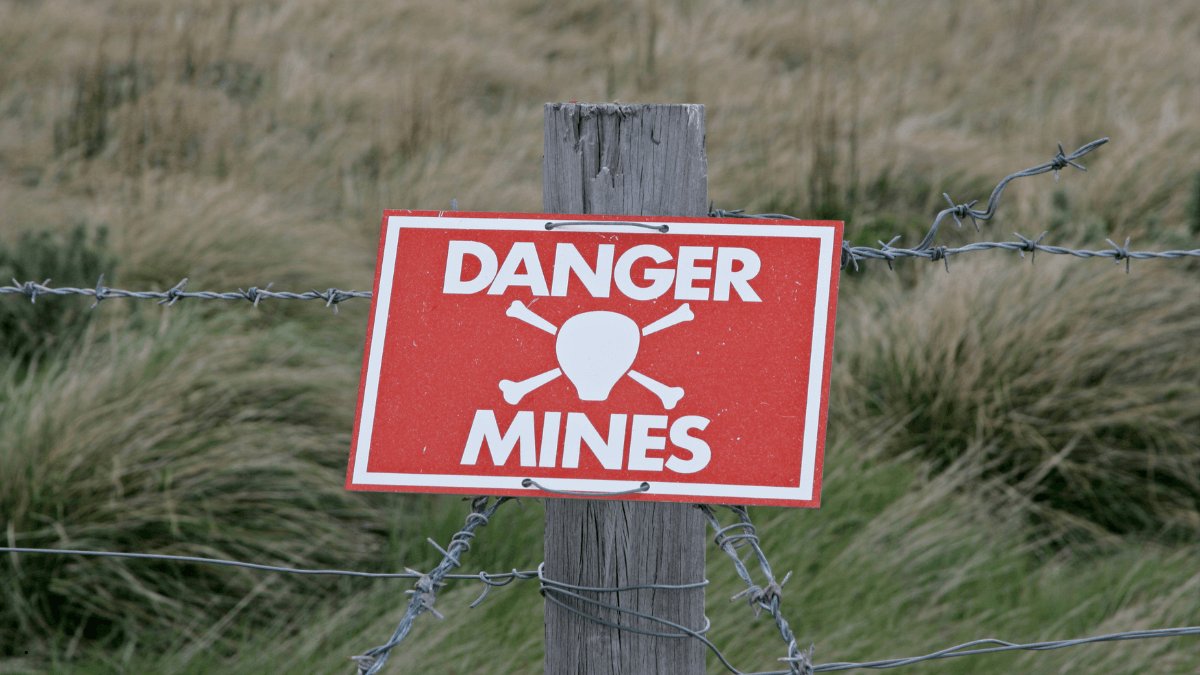Over 25 years ago, Princess Diana captured the world’s attention by walking through an Angolan minefield, shining a light on the devastating human cost of landmines. Her tireless advocacy not only pushed governments to confront this “plague on Earth” but also led to the landmark Ottawa Treaty, a global commitment to banning these hidden killers. Yet, decades later, the fight against landmines remains far from over.
The enduring presence of landmines in Cyprus is a tragic reminder of the island’s troubled history and the unresolved conflict between its communities. These hidden remnants of war pose a daily threat to lives, impede social and economic development, and serve as a symbolic barrier to reconciliation.
Despite international calls for action and the availability of financial and technical assistance, efforts to remove these deadly hazards have been obstructed – most notably by the inaction of Greek Cypriot authorities.
Landmines affect over two million square metres of land in Cyprus, rendering vast areas unusable for agriculture or development. While nearly 30,000 mines have been removed at a cost of over €14 million, an estimated €7 million more is needed to clear the remaining minefields.
As of 2022, there remained 29 suspected hazardous areas on the island. Specifically, there are three landmine areas under Greek Cypriot jurisdiction and one under Turkish Cypriot jurisdiction, all adjacent to the border.
Progress has been frustratingly slow, with demining operations hampered by Greek Cypriot resistance to granting access to known minefields. This reluctance stands in stark contrast to the urgency of the situation: landmines grow more unstable and dangerous over time, posing an increasing risk to anyone living or working near them.
The Turkish Republic of Northern Cyprus (TRNC) has shown a willingness to address this issue, working with the United Nations Peacekeeping Force in Cyprus (UNFICYP) to clear minefields within its territory.
Turkish Cypriot authorities have repeatedly invited cooperation from the Greek Cypriot side to expedite demining across the island, but these overtures have often been met with indifference or limited engagement.
Meanwhile, the Greek Cypriot leadership’s failure to act undermines their claims of seeking peace and coexistence, as unaddressed minefields continue to endanger lives and erode trust between the communities.
The humanitarian impact of this neglect is profound. Unmarked or poorly maintained minefields pose an immediate danger to civilians, particularly in buffer zones where both communities sometimes venture.
Demining must be considered a shared responsibility to the whole island and a legacy owed to future generations. Beyond the physical threat, landmines serve as a symbol of division and mistrust, hindering efforts to build a united future for Cyprus.
This inaction also raises serious questions about accountability. Cyprus, the UK, Türkiye, and Greece are all signatories to the Mine Ban Treaty, which obligates them to take proactive steps to eliminate landmines.
As a guarantor of Cyprus’s independence, the UK has a moral responsibility to advocate for stronger demining efforts and ensure that all parties come to the table to address this urgent humanitarian issue. This can only be achieved with David Lammy opening dialogue with all parties on the Island.
Clearing landmines is not just a matter of safety; it is a vital step toward promoting reconciliation and rebuilding trust. Removing these remnants of conflict would demonstrate goodwill and commitment to a more peaceful Cyprus.
The Greek Cypriot leadership must move beyond empty rhetoric and take tangible action required to resolve this issue, working with the TRNC and international partners.
The legacy of landmines cannot be ignored. For the safety and prosperity of both Turkish Cypriots and Greek Cypriots, immediate and decisive action is needed to remove these hidden dangers and pave the way for a better future for all people on the island.

